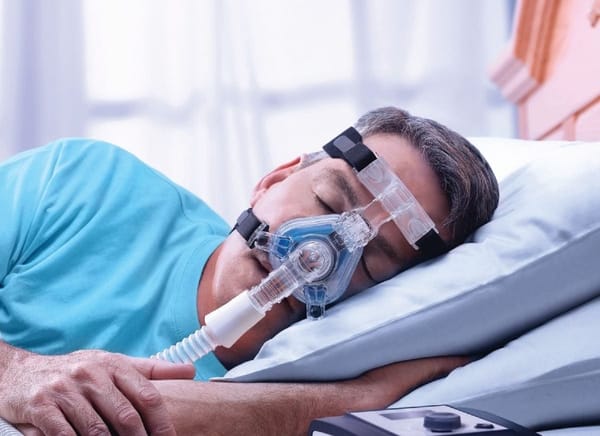Sleep is a fundamental biological process that plays a crucial role in our physical health, cognitive function, and emotional well-being. Despite its importance, many people struggle to get adequate, quality sleep. This article explores the science behind sleep and provides evidence-based strategies for optimizing your rest.
Understanding Sleep Cycles
Sleep is not a uniform state but consists of several distinct stages that cycle throughout the night:
- Non-REM Stage 1: Light sleep, easily awakened
- Non-REM Stage 2: Deeper sleep, body temperature drops
- Non-REM Stage 3: Deep, slow-wave sleep
- REM (Rapid Eye Movement): Dream state, important for memory consolidation
A typical sleep cycle lasts about 90-110 minutes, and we go through 4-6 cycles per night .
The Importance of Sleep
Adequate sleep is crucial for numerous bodily functions:
- Cognitive Function: Sleep enhances learning, memory consolidation, and problem-solving skills .
- Physical Health: Sleep is involved in healing and repair of heart and blood vessels, maintaining a healthy balance of hormones, and supporting the immune system .
- Emotional Well-being: Lack of sleep is associated with increased risk of depression and anxiety .
Factors Affecting Sleep Quality
Several factors can impact the quality and quantity of our sleep:
- Circadian Rhythm: Our internal "body clock" regulates sleep-wake cycles .
- Light Exposure: Blue light from electronic devices can disrupt melatonin production .
- Diet and Exercise: What and when we eat and exercise can affect our sleep patterns .
- Stress and Anxiety: Mental health issues can significantly impact sleep quality .
Strategies for Optimizing Sleep
Based on scientific research, here are some evidence-based strategies for improving sleep:
- Maintain a Consistent Sleep Schedule: Go to bed and wake up at the same time every day, even on weekends .
- Create a Relaxing Bedtime Routine: Engage in calming activities before bed, such as reading or gentle stretching .
- Optimize Your Sleep Environment: Keep your bedroom dark, quiet, and cool (around 65°F or 18°C) .
- Limit Screen Time Before Bed: Avoid blue light exposure at least 1-2 hours before bedtime .
- Be Mindful of Diet and Exercise: Avoid large meals, caffeine, and alcohol close to bedtime. Regular exercise can improve sleep quality, but not too close to bedtime .
- Manage Stress: Practice relaxation techniques like deep breathing or meditation .
- Consider Cognitive Behavioral Therapy for Insomnia (CBT-I): This therapy has been shown to be effective for chronic sleep issues .
The Role of Sleep Technology
While technology can sometimes interfere with sleep, certain devices and apps can also help optimize rest:
- Sleep Trackers: Devices that monitor sleep patterns can provide insights into sleep quality .
- White Noise Machines: These can help mask disruptive environmental noises .
- Light Therapy Devices: These can help regulate circadian rhythms, especially for those with seasonal affective disorder .
However, it's important to note that while these technologies can be helpful, they should not replace professional medical advice for serious sleep issues.
When to Seek Professional Help
If you consistently struggle with sleep despite implementing good sleep hygiene practices, it may be time to consult a healthcare professional. Chronic sleep issues can be a sign of underlying health conditions such as sleep apnea, restless leg syndrome, or clinical insomnia .
Conclusion
Sleep is a complex and vital process that affects every aspect of our health and well-being. By understanding the science of sleep and implementing evidence-based strategies, we can optimize our rest and reap the numerous benefits of quality sleep. Remember, good sleep is not a luxury—it's a necessity for a healthy, productive life 💤
Sources:
[1] National Institute of Neurological Disorders and Stroke. (2019). Brain Basics: Understanding Sleep. https://www.ninds.nih.gov/Disorders/Patient-Caregiver-Education/Understanding-Sleep
[2] Walker, M. (2017). Why We Sleep: Unlocking the Power of Sleep and Dreams. Scribner.
[3] Centers for Disease Control and Prevention. (2020). Sleep and Sleep Disorders. https://www.cdc.gov/sleep/index.html
[4] Harvard Medical School. (2020). Healthy Sleep. http://healthysleep.med.harvard.edu/
[5] Buysse, D. J. (2014). Sleep Health: Can We Define It? Does It Matter? Sleep, 37(1), 9-17. https://doi.org/10.5665/sleep.3298
[6] National Sleep Foundation. (2020). Sleep Hygiene. https://www.sleepfoundation.org/articles/sleep-hygiene
[7] Qaseem, A., Kansagara, D., Forciea, M. A., Cooke, M., & Denberg, T. D. (2016). Management of Chronic Insomnia Disorder in Adults: A Clinical Practice Guideline From the American College of Physicians. Annals of Internal Medicine, 165(2), 125-133. https://doi.org/10.7326/M15-2175
[8] Berson, D. M., Dunn, F. A., & Takao, M. (2002). Phototransduction by Retinal Ganglion Cells That Set the Circadian Clock. Science, 295(5557), 1070-1073. https://doi.org/10.1126/science.1067262















Member discussion